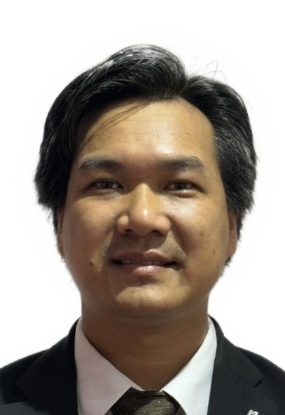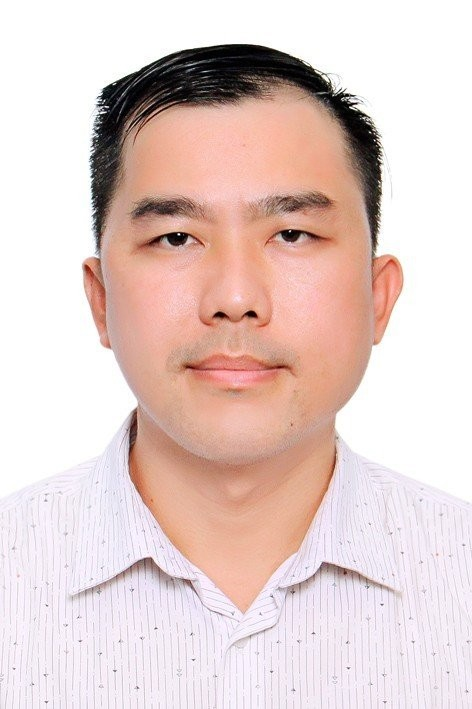Invited Speakers
Invited Speakers

Tu Le Manh
Phenikaa University, Vietnam
Biography: Tu Le Manh is a Metallurgical engineer, Master in Extractive Metallurgy (2010 and 2011) from Higher Institute of Mining and Metallurgy, Cuba. In 2016, he did PhD in Metallurgy and Materials Science at National Polytechnic Institute (IPN), Mexico. From 2016 to 2018, he was a postdoctoral fellow at Autonomous Metropolitan University dedicating on metals electrodeposition using deep eutectic solvents. He became a visiting professor and Researcher SNI 1 at the IPN in 2018. He joined Phenikaa University in 2019 and was promoted to be an Associate professor / Head of Applied Electrochemical Lab, Faculty of Materials Science and Engineering, Phenikaa School of Engineering, Phenikaa University (2023), where he received several outstanding scientist awards in 2019, 2023, 2024, and 2025. He has directed 08 master and doctoral theses for national and international students and several national and international projects related to metals recovery, deep eutectic solvents, electrocatalysts, and fuel cells. He published two Elsevier books in 2020 and 2024 and more than 70 ISI/Scopus papers.

Nhu-Tung Nguyen
Vietnam National University, Hanoi, Vietnam
Biography: Dr. Nhu-Tung received the Ph.D. degree from the Department of Mechanical Engineering, National Kaohsiung University of Applied Sciences, Taiwan, in 2015. He is currently an Associate. Professor of the Faculty of Engineering and Technology, International School, Vietnam National University, Hanoi, Vietnam. His research interests focus on Mechanical Engineering, Material Machining Dynamics, Modeling, Simulation, Prediction, Optimization, Manufacturing Systems, Systems Engineering, etc. He authored/co-authored over 100 International Journal papers, International Conference Proceeding Papers. He serves as the Editorial Advisory Board of several international journals. He is also a regular reviewer for more than 10 international journals and several national journals.
Speech title: Study on Modeling of the Characteristics of Material Machining Processes with different pairs of Cutting Tools and Workpiece Materials
Abstract- In the processes of machining materials, especially cutting processes, the characteristics of the machining process such as cutting forces, vibrations, surface roughness, hardening, material removal rate, energy consumption, ... are used to evaluate the quality and efficiency of the machining process. In this synthesis study, several characteristics of the machining process have been modeled based on the geometric and mechanical interaction phenomena of the cutting tool and the workpiece material. The models were developed focusing on milling processes with different cutting tools (flat end mill cutter, ball end mill cutter, using parallelogram inserts, using circular inserts, ...). The developed models are also applied to machining materials with different hardness such as aluminum alloys (Al6061, Al7075), steels (C45, SKD11). A series of experiments were conducted to verify the developed model and evaluate the practical applicability of the proposed models.

Nguyen Doan Quoc Anh
Ton Duc Thang University, Vietnam
Biography: Nguyen Doan Quoc Anh was born in Khanh Hoa province, Vietnam. He is a Lecturer in the Faculty of Electrical and Electronics Engineering at Ton Duc Thang University. He earned his Ph.D. in Electrical Engineering from the National Kaohsiung University of Applied Sciences, Taiwan, in 2014. His research interests focus on optical materials and LED lighting technologies, including freeform and total internal reflection (TIR) lenses, light scattering materials such as phosphors, and novel lighting systems for sustainable applications. Dr. Anh has published over 60 peer-reviewed papers, with more than 600 citations, and holds a U.S. patent on TIR lens technology for automotive lighting. He has led several national and provincial research projects, notably a sustainable fishing lighting project recognized by The Hitachi Global Foundation Asia Innovation Award 2023. His current research emphasizes the development of high-efficiency, cost-effective LED systems and advanced optical designs for energy-saving illumination technologies.
Speech title: IMPROVEMENT OF COLOR UNIFORMITY IN WHITE LIGHT-EMITTING DIODES WITH SCATTERING ENHANCEMENT MATERIALS
Abstract- This study explores the effects of varying particle sizes of scattering materials on the optical performance of white light-emitting diodes (LEDs), with a focus on lumen output, Correlated Color Temperature (CCT), Color Rendering Index (CRI), and Color Quality Scale (CQS). These particles were incorporated into LED systems with varied sizes, and their impact on light scattering, efficiency, and color quality was analyzed using Mie scattering simulations and testing validation. The results indicate that such particles deliver the optimal performance, yielding a substantial lumen output and a significant CQS value, reflecting superior light quality and balanced color rendering. Although the CRI remained moderate, the consistency across various particle sizes suggests that the scattering particles could be a viable material for applications requiring stable color fidelity. Moreover, the CCT analysis revealed minimal color temperature deviation, contributing to more stable lighting conditions. These findings suggest that the material offers competitive optical properties compared to conventional scattering materials with potential applications in high-efficiency LEDs, dynamic lighting solutions, and color-tunable light sources.

Jidsucha Darayen
Faculty of Engineering, Thammasat School of Engineering, Thammasat University, Thailand
Biography: Dr. Jidsucha Darayen is a lecturer in Chemical Engineering at Thammasat University. She earned her Bachelor’s and Master’s degrees in Metallurgical and Materials Engineering and her Ph.D. in Nanoscience and Technology from Chulalongkorn University. Her research focuses on waste recycling, sustainable materials, and surface engineering. She has worked on activated carbon from agricultural waste, Cu-based catalysts for CO2 reduction, and Ni–W coatings as eco-friendly alternatives to hard chrome. Her current work emphasizes surface modification for environmental applications, including pollutant adsorption, catalytic materials, and green functional surfaces.
Speech title: Sustainable Surface Modification Strategies for Next-Generation Environmental Materials
Abstract- Surface modification is a key approach for creating environmentally functional materials with enhanced performance and reduced ecological impact. By tuning surface chemistry, porosity, and microstructure, materials can achieve significantly higher adsorption capacity, catalytic efficiency, and sensing responsiveness. This talk highlights sustainable surface-engineered materials in both carbon-based and metallic systems. Activated carbons derived from agricultural waste demonstrate how surface functionalization and increased surface area improve the removal of toxic pollutants from water and air. These modified surfaces also enable fair functional-unit comparisons in life-cycle assessment, linking material design to environmental metrics. In metallic materials, porous Cu surfaces for CO2 reduction and Cu/Au-modified carbon electrodes for biosensing illustrate the role of nanoscale surface tailoring. Ni–W electrodeposited coatings are further presented as eco-friendly, Cr⁶⁺-free alternatives with excellent corrosion and wear resistance.